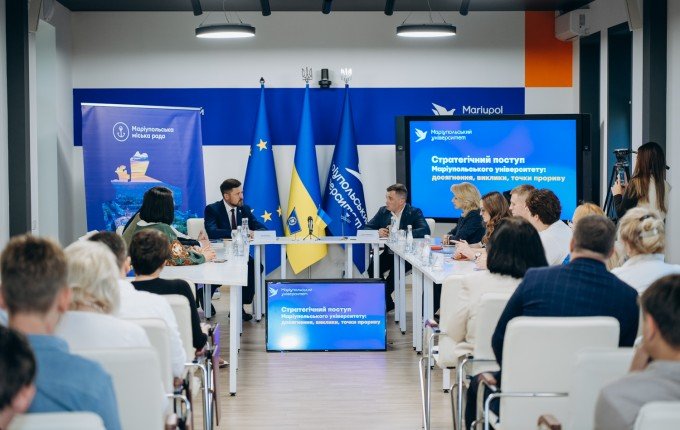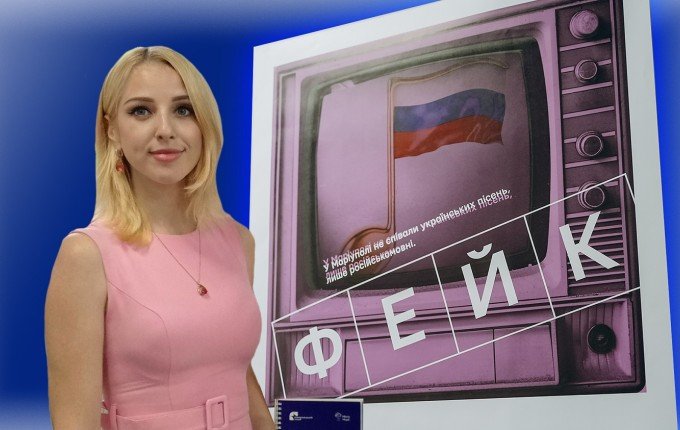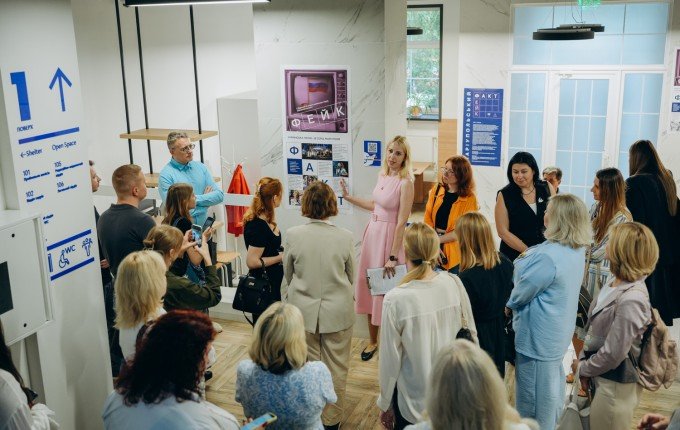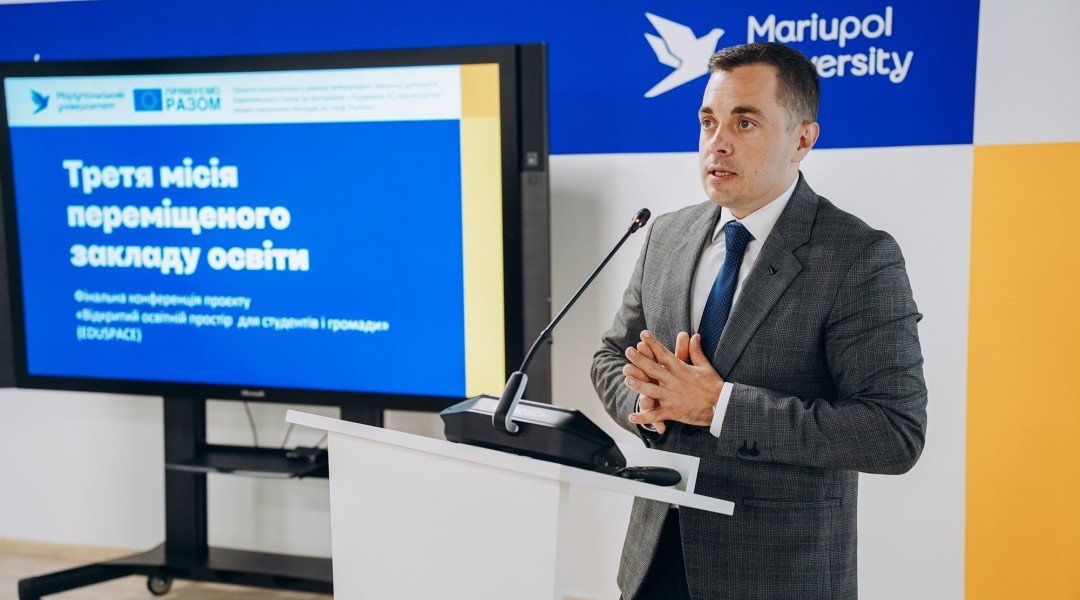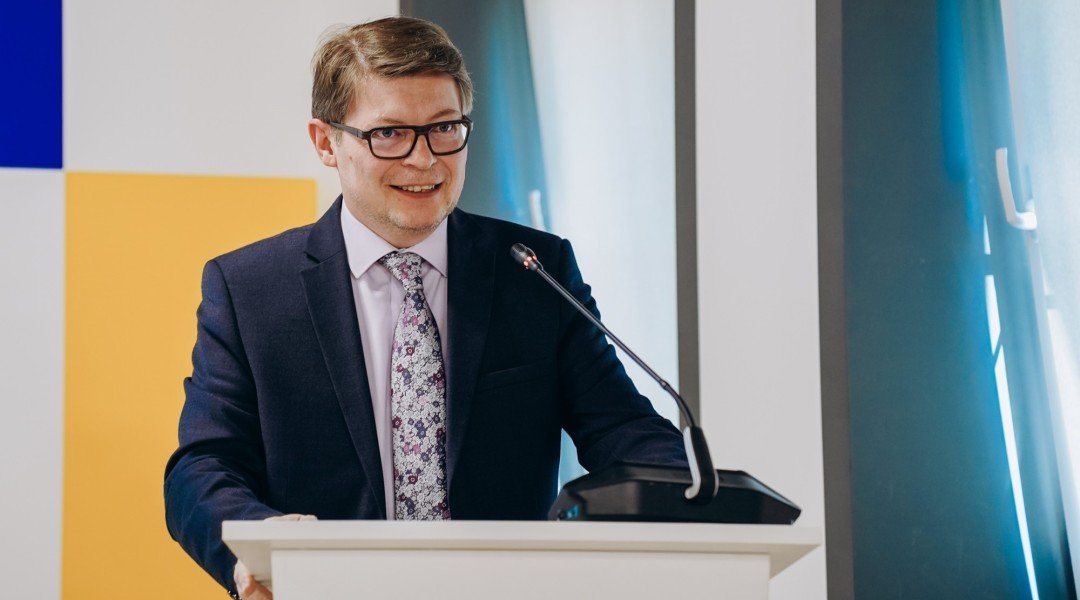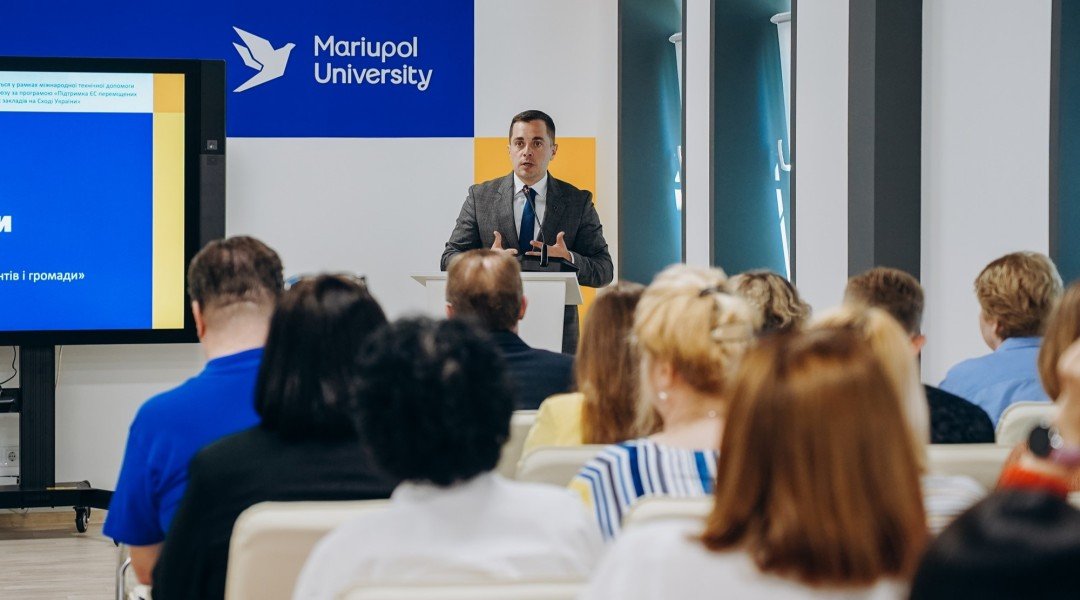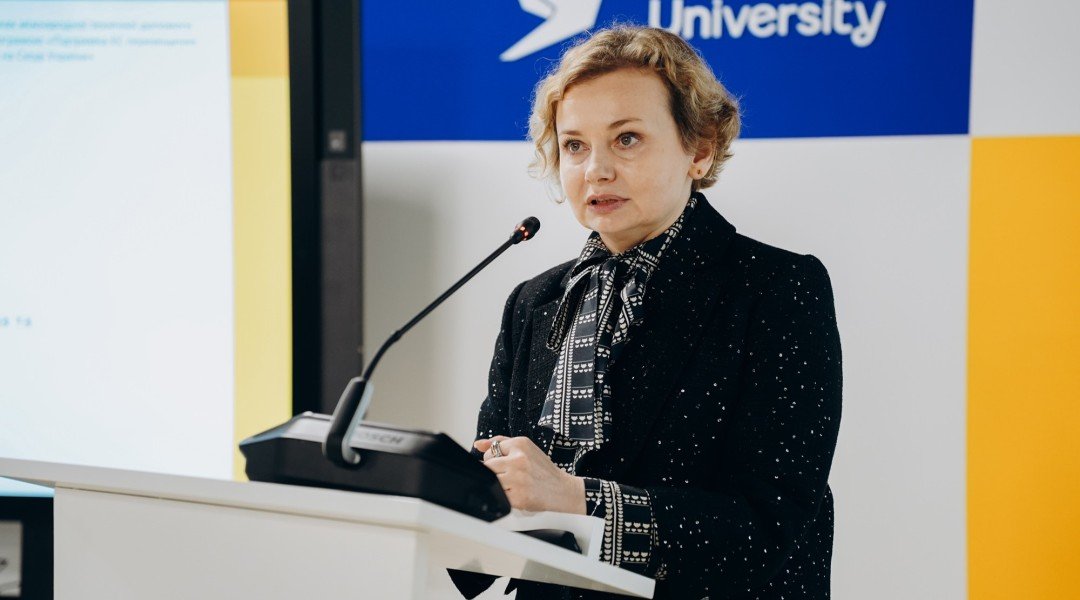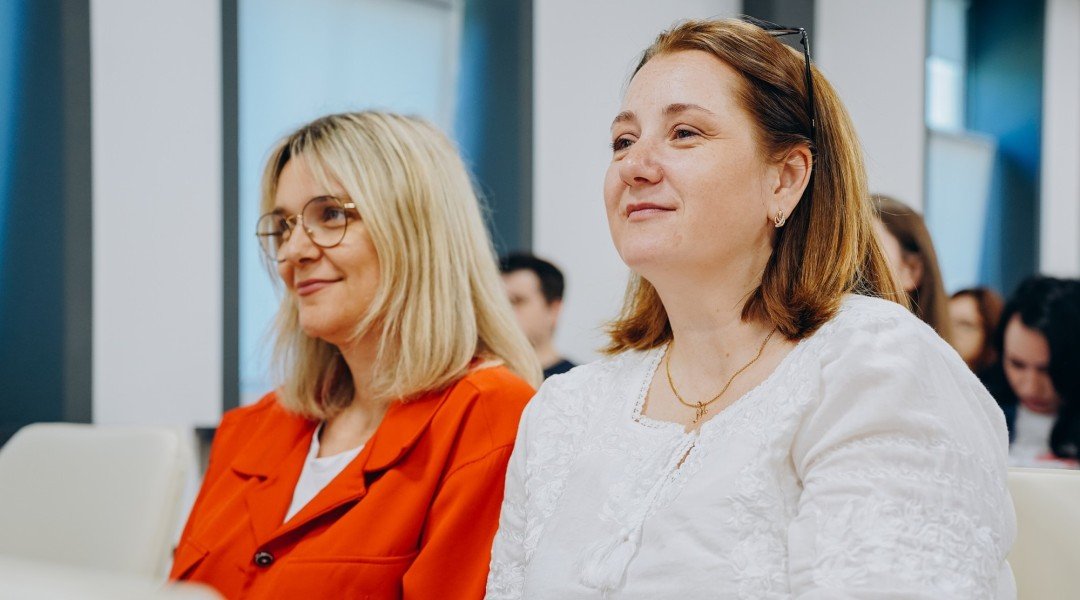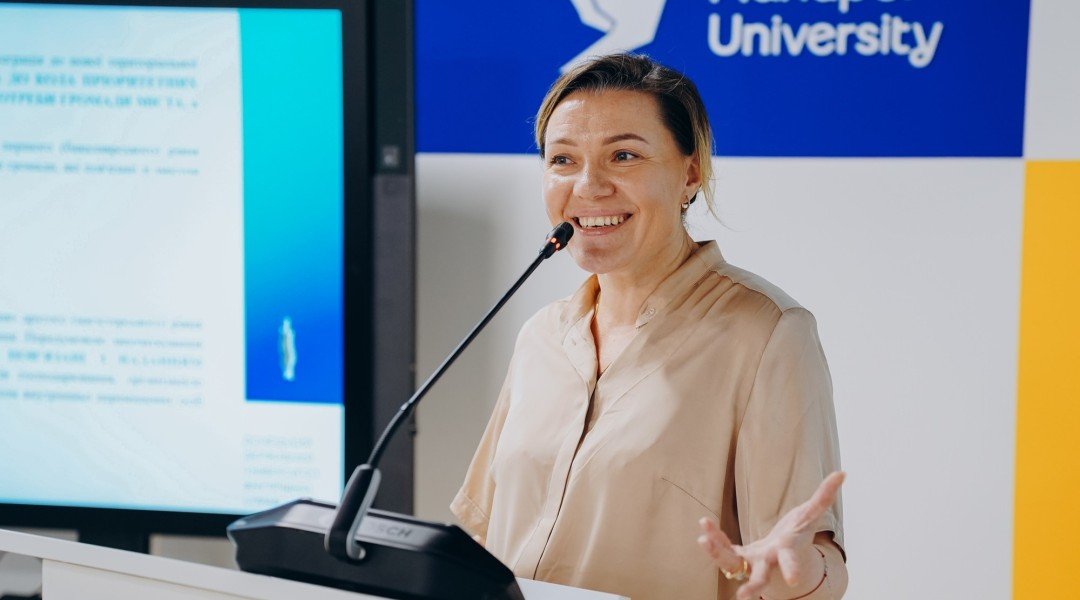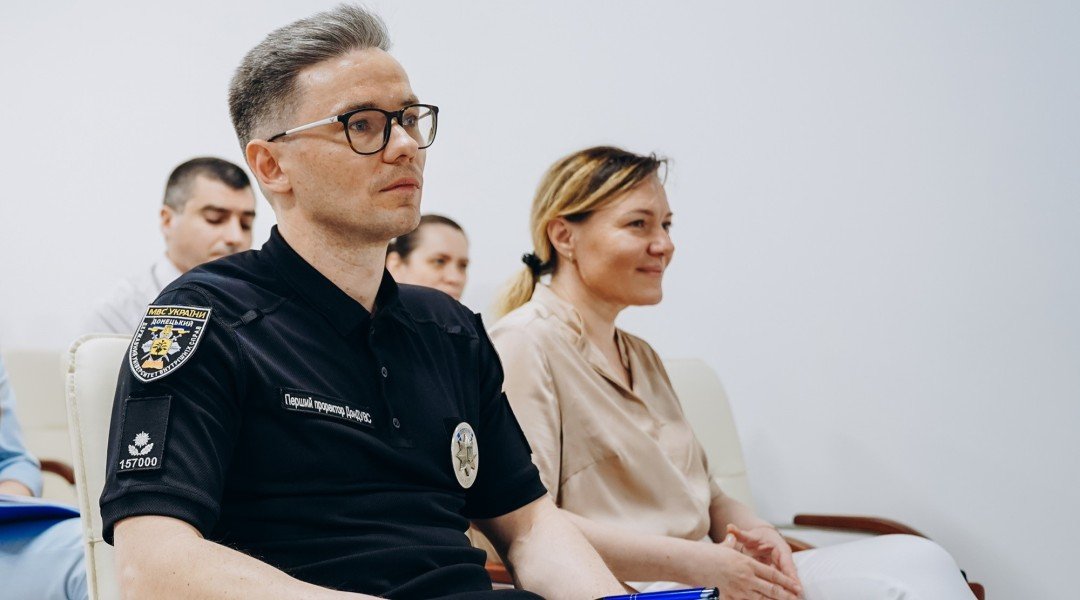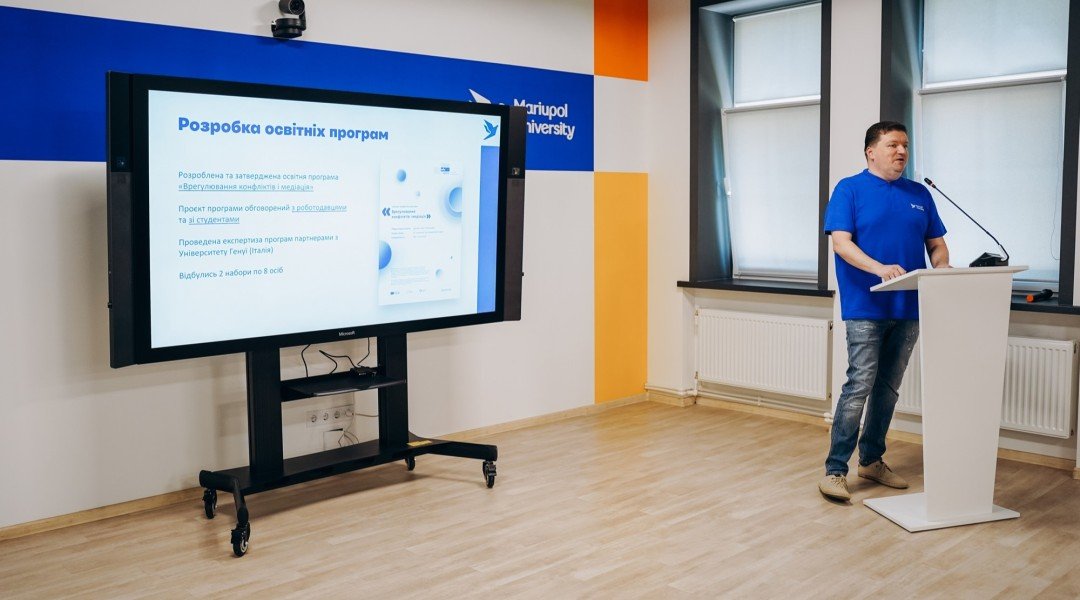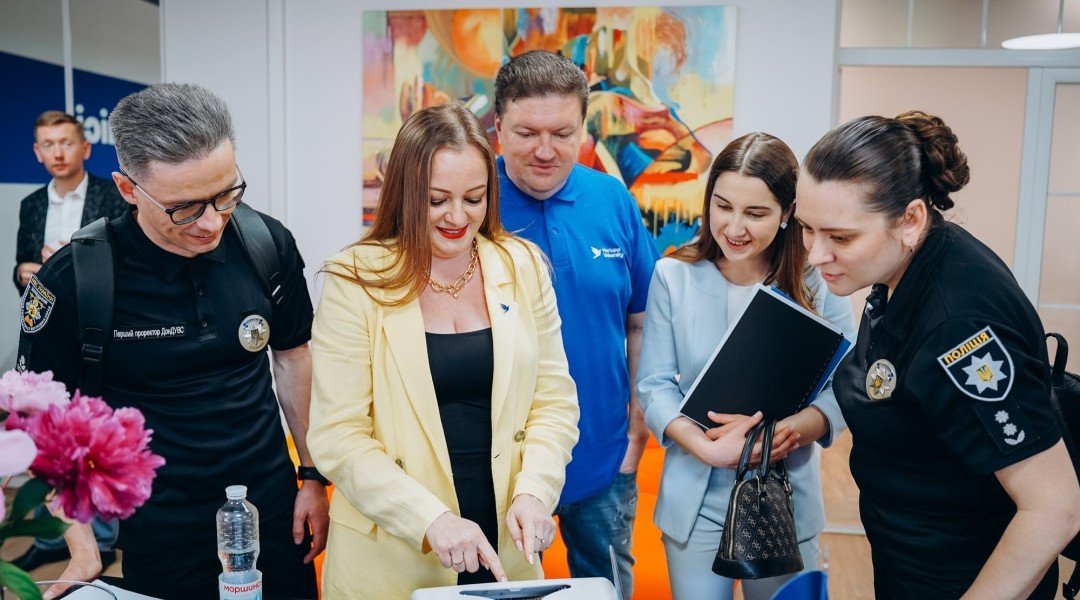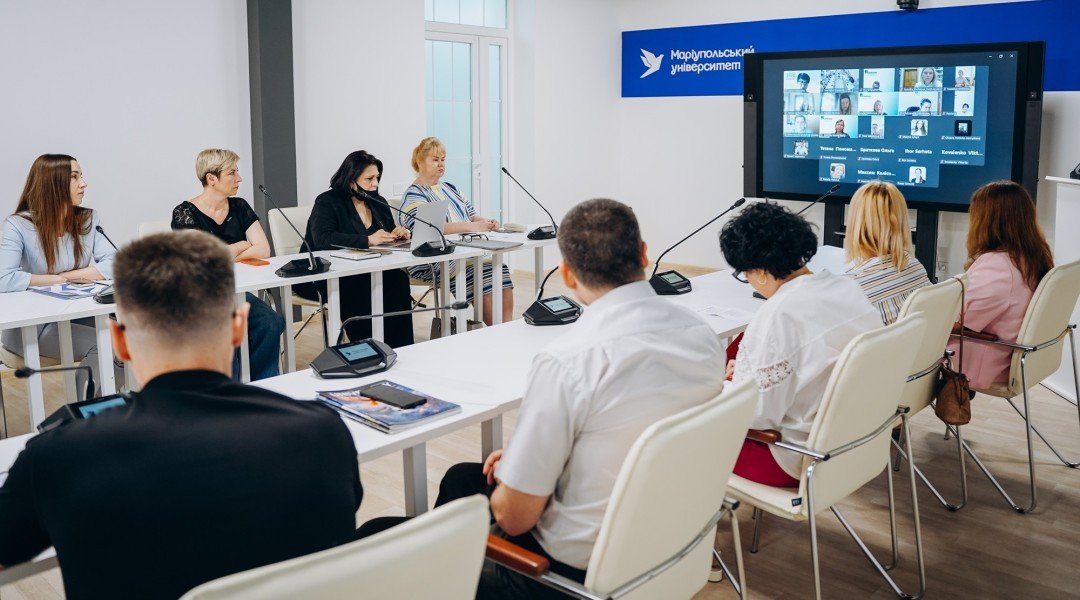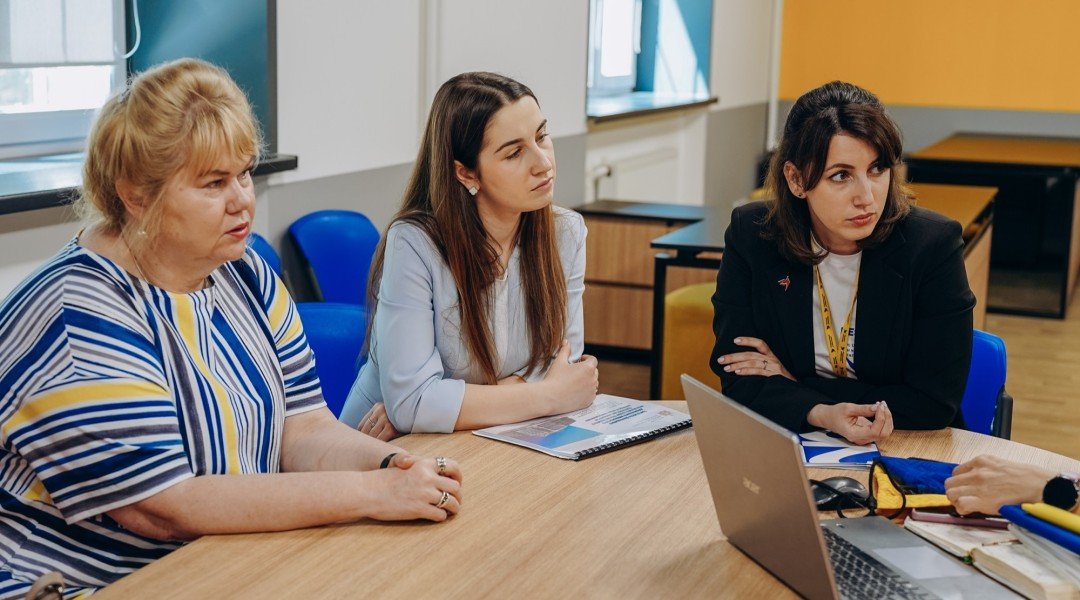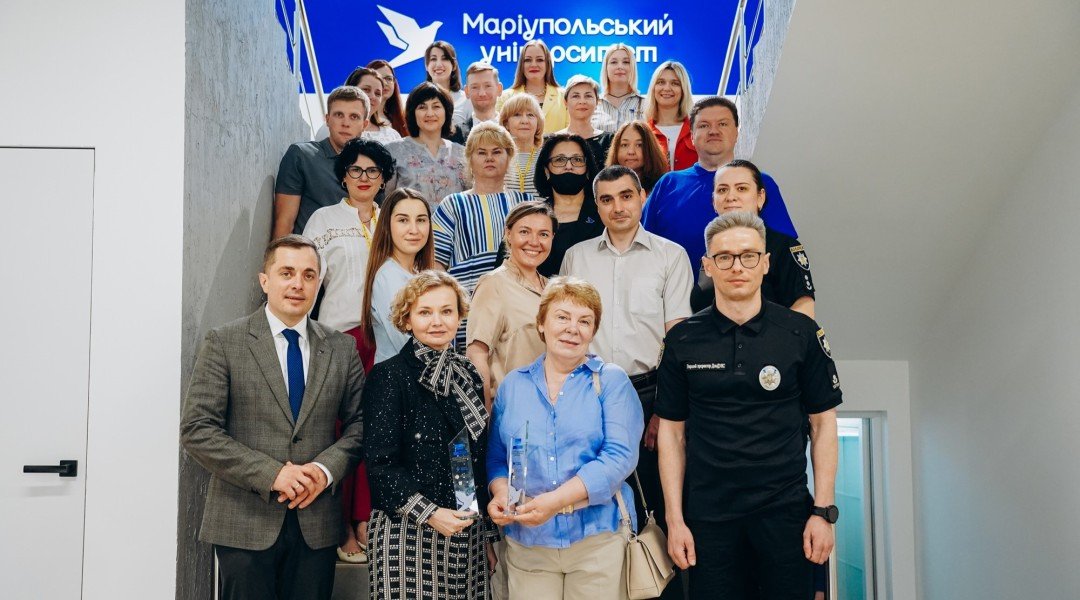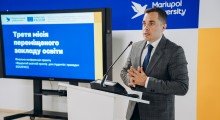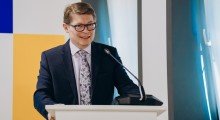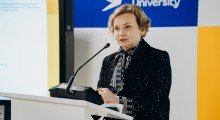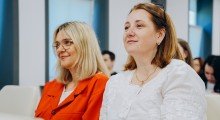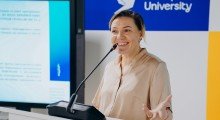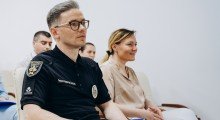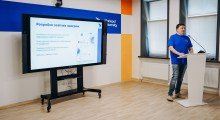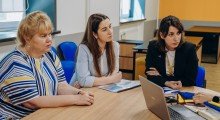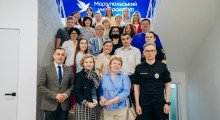Community’s shield, heart, and spirit: EU-supported project results were summed up at MSU
Mariupol State University is completing the implementation of the international project "Open Educational Space for Students and Community" (EDUSPACE). Its final event was the conference "Third Mission of the Displaced Educational Institution" held in the front office of MSU. On May 24 it brought together the academic communities of project partners and representatives of institutions that provided important support.
Due to the full-scale invasion of the Russian aggressor on the territory of Ukraine, the communities of Mariupol University and Donetsk State University of Internal Affairs were forced to relocate. Both educational institutions started the EDUSPACE project in Mariupol.
MSU Rector Mykola Trofymenko, as the host party, was the first to address the audience. He emphasized the importance of the infrastructural focus of the project for universities that lost educational facilities due to the war and received those that require great efforts to make them modern and fill them with the feeling of a lost home.
The restoration of the physical space of the university after the relocation was the event hard to believe. Owing to the project, we were able to renovate the building and create a cozy educational space for students and the community. Today, Mariupol University is the bearer of the Mariupol brand, and our task is to preserve the Mariupol identity. For us, EDUSPACE is a colossal support and contribution to the strategic mission implementation,
– says MSU rector Mykola Trofymenko.
After his speech, the head of the Invincible University gave the floor to the deputy head of the Representative Office of the European Union in Ukraine, Remy Duflo. He began his address to the audience by mentioning Mariupol, which he remembered as a flourishing city. He emphasized that Mariupol University should become a small home for the people of Mariupol.
The European Union is proud to support the relocated universities' perseverance and further development in new locations. This support reflects the desire to strengthen the capacity of the tertiary education system of Ukraine, to overcome the challenges caused by the war, to ensure the competitiveness of Ukrainian universities with the universities of EU member states in the process of European integration of Ukraine,
– says Deputy Head of the EU Representative Office in Ukraine, Remy Duflo.
The next speaker was Stella Shapoval, Deputy Director General of the Directorate of International Cooperation at the Ministry of Education and Science of Ukraine. She was impressed by the rapid changes in the educational space of MSU and thanked the international institutions for supporting the initiatives vital for Ukrainian universities.
After inspiring words to the relocated universities, Yehor Nazymko, the first vice-rector of Donetsk State University of Internal Affairs, addressed the conference participants. In his speech, he emphasized, summing up the project's impact, that Mariupol University is the heart and spirit of the community, and Donetsk State University of Internal Affairs is its shield.
Having connected online, the head of the department of pedagogical sciences of the University of Genoa (Italy), Guido Amoretti, expressed gratitude and sincere greetings to the partners on behalf of his academic community. The Italian institution hosted Ukrainian colleagues to share its experience in creating open spaces and helped with expertise in opening new educational programs.
The project team led by its manager, Andriy Stoika, professor of the management and tourism department, reported to the conference participants on the EDUSPACE results and its impact on Mariupol University's transformation into a pro-social institution.
During the conference, universities also shared practices on how their buildings, which have been restored according to the project, enable them to be useful to the community and provide services that people demand. For instance, a pro-community center, which grew out of a humanitarian headquarters, was opened at Mariupol University. The cultural and educational events are held at the university, and continuous education has been resumed for third-age students.
Before continuing the discussion of how important the pro-social component of displaced universities is, Andrii Stoyka led the guests on a tour of the educational spaces open to students and the community. Later, the conference participants split up to work in sections. Their topics related to demanded curricula elaboration and interaction with the community.
Останні новини:
